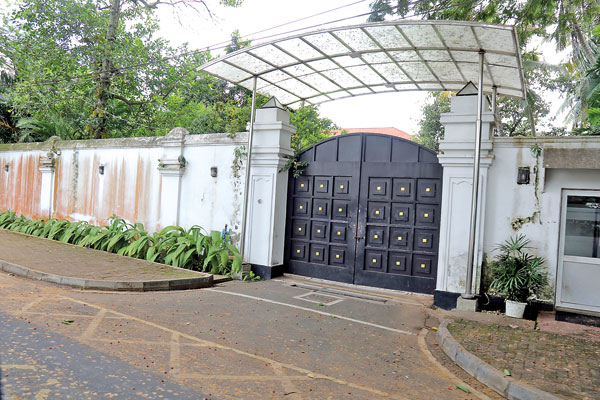Mosquitoes, mice and termites now live in ministerial residences in Colombo
Government-owned housing in the Sri Lankan capital, including those of former presidents, is in a state of neglect and have been invaded by pests. The decision by the National People's Power government to have its members stay in their own homes has had an impact. A committee has been set up to find ways of dealing with the situation, while neighbours complain of serious health risks and lack of maintenance.
Colombo (AsiaNews) – Mosquitoes proliferate in several ministerial residences (including those used by former presidents). Houses are degrading because termites and mice take refuge in buildings that are almost 100 years old. The gardens of the houses are overgrown with weeds and the roofs and gutters are full of leaves.
In view of the situation, the government appointed a committee to study and make recommendations regarding the use of former ministerial residences, with the aim of restoring them, since many are vacant and in a state of neglect, including those used by former presidents Maithripala Sirisena and Ranil Wickremesinghe.
The committee includes officials from the Urban Development Authority (UDA), the Ministry of Tourism, the Sri Lanka Tourism Development Authority (SLTDA), and the Chamber of Commerce.
Some houses are guarded by security forces and police. But most of the unused and neglected buildings have become breeding grounds for insects, including mosquitoes, due to stale water.
Bats are currently roosting in four ministerial residences that have been abandoned and not undergone maintenance on a side street in Wijerama Mawatha, Colombo.
The Sasana Buddha Ministry building also is in a dilapidated state. A large number of cinder blocks are stacked in front of the house, while wood is piled on one side of the building. The perimeter wall leans to one side, endangering residents in adjacent houses and pedestrians.
According to former Agriculture Minister Mahinda Amaraweera, “when left unoccupied and without maintenance, houses start to dilapidate, termite mounds grow, cracks and openings appear, and gardens become overgrown creating ideal conditions for mosquitoes to breed.”
The Minister of Foreign Labour and Employment, Manusha Nanayakkara, who occupied the residences in question, agrees.
The houses are not used as a result of a political decision by the National People's Power government, but they are guarded by the military.
“Closure and non-use of old buildings is not preservation, instead, it paves the way to destruction. Preservation is done when in use. The buildings should not merely be maintained and kept closed. Instead, they should be used for income-generating activity,” a former minister said.
Since the State does not have sufficient funds, it should “arrange a public private partnership (PPP) and maintain the buildings. The Government can keep the ownership of the buildings while the private sector can use and maintain the buildings.’’
The Deputy Minister of Urban Development, Construction and housing, T.B. Sarath explained that government ministers and deputy ministers made a policy decision to not use lavish official residences.
Ministers from the capital can stay in their own homes, while some ministers stay at parliament member’s quarters at Madiwela.
The President’s official residence, that of the prime minister, and the speaker’s residence at Battaramulla are being maintained and used for official functions and meetings, but are not occupied.
Nisal Saramasekara, Kamilini Sylvester and Samuel Ragunathan live in Torrington Avenue and Wijerama Mawatha, Colombo, close to the abandoned residences.
Speaking to AsiaNews they said that they asked the “UDA to clear the overgrown properties, remove non-degradable waste, mosquito breeding places and to ensure that residents do not get infected with chikungunya, dengue and other diseases.”
Other residents complain that the authorities were slow in taking care of the properties even after they reported problems.
Low-income families in the area lamented that the Pest Control Unit of the Colombo Municipal Council (CMC) carried out the fogging and spraying of mosquito larvicides. However, garbage was not removed and the land was not cleared.
For Y. Sanjeewa Francis, a health instructor with the CMC Pest Control Unit, the clearing of the trees and garbage should be done by the UDA.
As the monsoon season now nears, mosquito numbers will increase. Hence, destroying mosquito breeding areas, especially garbage sites is essential.







.png)










